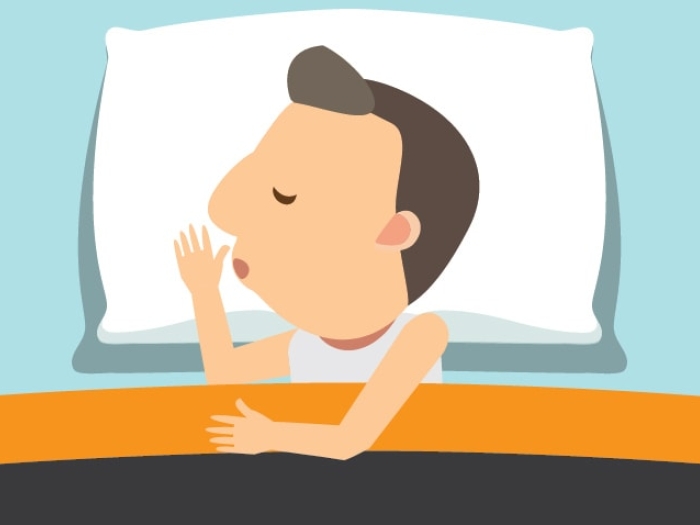The sleep disorder does more than disrupt a good night’s rest. Left untreated, it can trigger a host of serious concerns.
7:00 AM
Author |

Obstructive sleep apnea is a condition in which a person experiences obstructed or restricted breathing. OSA occurs repeatedly for periods of 10 seconds or longer during sleep — with loud snoring or choking noises a telltale sign.
MORE FROM MICHIGAN: Sign up for our weekly newsletter
That can leave you (and probably your partner) feeling tired and groggy the next day.
But OSA also raises your risk of other health issues, says Anita Shelgikar, M.D., of the Michigan Medicine Alternatives to CPAP Clinic.
Which is why identifying the problem is crucial. Some patients may benefit from a continuous positive airway pressure, or CPAP, machine to keep the throat from collapsing during sleep.
SEE ALSO: 10 Alternatives to CPAP for Treating Obstructive Sleep Apnea
Other people might need to lose weight, change their sleeping position or undergo surgery.
Untreated OSA can lead to many issues. Shelgikar detailed six of them:
Health risks of obstructive sleep apnea
High blood pressure. Untreated sleep apnea is associated with high blood pressure and may make it more difficult to control your blood pressure with medication.
Difficulty concentrating. OSA can reduce your ability to think clearly, leading to poor work performance and reliance on stimulants such as caffeine and sugary foods.
Heart disease. Sleep apnea is a risk factor for heart attack, stroke and blood clots in the legs. The risk is higher with moderate or severe OSA and other comorbidities.
Car accidents. OSA may make you excessively sleepy and cause you to fall asleep at the wheel. The risk of fatal car accidents is much greater.
Emotional concerns. OSA is associated with emotional disturbances and may increase the risk of mental health conditions such as anxiety and depression.
Surgery complications. Untreated sleep apnea increases the risk of airway obstructions, abnormal heart rhythms and other complications during surgery.
Shelgikar recommends seeing a sleep medicine physician or your primary care physician if you have concerns about possible obstructive sleep apnea. He or she may recommend an overnight sleep study at a clinic or an at-home test.
"Don't just 'sleep on it,'" Shelgikar advises. "Sleep apnea can be diagnosed and treated, with happy and healthy results."
Learn more about sleep disorders at the Michigan Medicine Sleep Disorder Center. Call 734-936-9068 to speak with a representative.

Explore a variety of health care news & stories by visiting the Health Lab home page for more articles.

Department of Communication at Michigan Medicine
Want top health & research news weekly? Sign up for Health Lab’s newsletters today!





